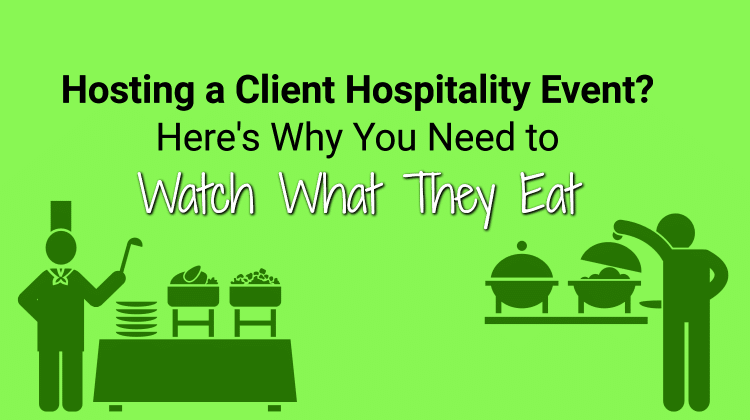
Food allergies, as well as personal food preferences, are on the rise. Currently, Food Allergy Research and Education (FARE) estimates up to 15 million Americans have food allergies. As a result, hosting client hospitality events is becoming more complicated.
As a professional corporate event planner, however, I see this trend as an opportunity, not a challenge. By noting and responding to attendees’ food allergies and preferences, you can keep them safe, happy, and simultaneously, demonstrate your attention to detail.
Planning ahead is key. Food allergy considerations should be considered when selecting the event date, collecting registration information, choosing menus, and of course, when on site.
For example, here are six key things to consider:
1. Religious Holidays
When choosing the event date, be mindful of any religious holidays that may affect your attendees’ diets.
2. RSVPs
Always invite your guests to indicate their food allergies and preferences when they RSVP to your event. For written or electronic RSVPs, instead of forcing people to check a box, leave a blank space so they can be specific. Don’t forget to ask spouses, speakers, sponsors, and exhibitors, too.
3. Outreach
If possible, contact invitees with food allergies personally. If the allergy is life threatening, ask if he or she has an emergency care plan to share.
4. Buffets
When planning menus, be aware that buffets are difficult for some people due to the potential for cross-contamination. This doesn’t mean buffets are a no-go, it just means that you may still want to have a special plate available for certain guests.
5. Labels
Label everything, not only for safety but to demonstrate your attention to detail. Work with the venue, chef, and caterer in advance to ensure the top eight allergens are clearly labeled. In addition, consider adding if something is vegan, vegetarian, or contains gluten.
6. Compassion
Understand that it’s frightening for someone with dietary restrictions to eat publicly. They are at the mercy of catering staff, banquet staff, and their hosts. They don’t want to be singled out or create a fuss, but they need to do so for their best interest.
So the next time you gather your clients together for a “simple” meal, be smart and be prepared, and your guests will take notice. Dietary restrictions are not a fad; but are a way of life today.
About the Author
Carole Galle, CMP is a meeting architect and President & CEO of Special D Events, an experiential meeting/events agency with a people/planet/profit mission that helps corporate, nonprofit, and foundation clients globally.